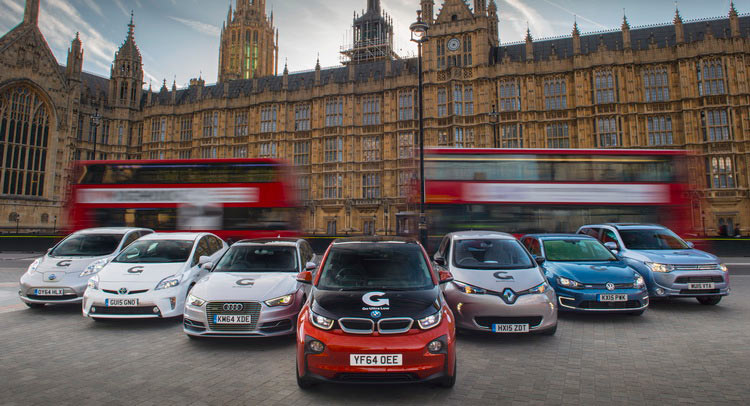According to Transport Minister Andrew Jones, UK fleets are becoming greener, EV registrations keep on growing and UK businesses are actually saving money by going electric.
During the Future of Business Mobility summit in London, company bosses were praised for adopting ULEVs (ultra low emission vehicles), with those very same companies being urged to remain “ambitious and bold” in their attempts to fully embrace plug-in vehicle technology.
The government-backed ‘Go Ultra Low’ campaign has uncovered that 20,992 ULEVs were registered between January and September this year, coming in at around 138.5% growth wise, compared to 2014. Over 64% of registrations were made to UK businesses as the ULEV market share grew to just over 1% of the total market.
Government officials also anticipate that by the year 2020, 5% of new car registrations (roughly 100,000 units) will be low-emission cars.
Speaking at during the summit, Andrew Jones said that “UK businesses have a crucial role to play in driving the growth of the UK’s electric vehicle market; two thirds of ultra low emission cars registered in the UK this year were bought for fleet and business use. We want to make electric vehicles the natural choice for all motorists, and the faith placed in this technology by UK businesses is helping to change attitudes and boost demand. Company bosses recognise that electric vehicles are good for business and good for Britain, and we want the general public to follow their example.”
The thinking behind this movement isn’t just purely environmental. Despite the fact that EVs are generally priced higher than their petrol or diesel-powered counterparts, the estimated fuel savings, service and maintenance savings, as well as the insurance benefits more than make up for it.
This has been backed by data from Lex Autolease (UK’s largest leasing and fleet management company), which revealed that running a BMW i3 over four years/60,000 miles will deliver potential savings of £58 per month compared to non-electric cars. That comes in to £2,784 over a four-year cycle – which can then escalate to almost £28,000 over four years if your business operates a fleet of say 10 vehicles.
“It is important that businesses look beyond the initial list price of the vehicle. Electric cars benefit from government grants and tax breaks and are significantly cheaper to run and maintain, all of which helps to reduce the total cost of ownership. In addition, they provide notable environmental benefits,” said Poppy Welch, head of Go Ultra Low.
This collaborative campaign brings together a consortium of 7 large vehicle manufacturers such as Audi, BMW, Mitsubishi, Nissan, Renault, Toyota and VW. Mitsubishi were actually the last ones to join the Go Ultra Low, back in March.




